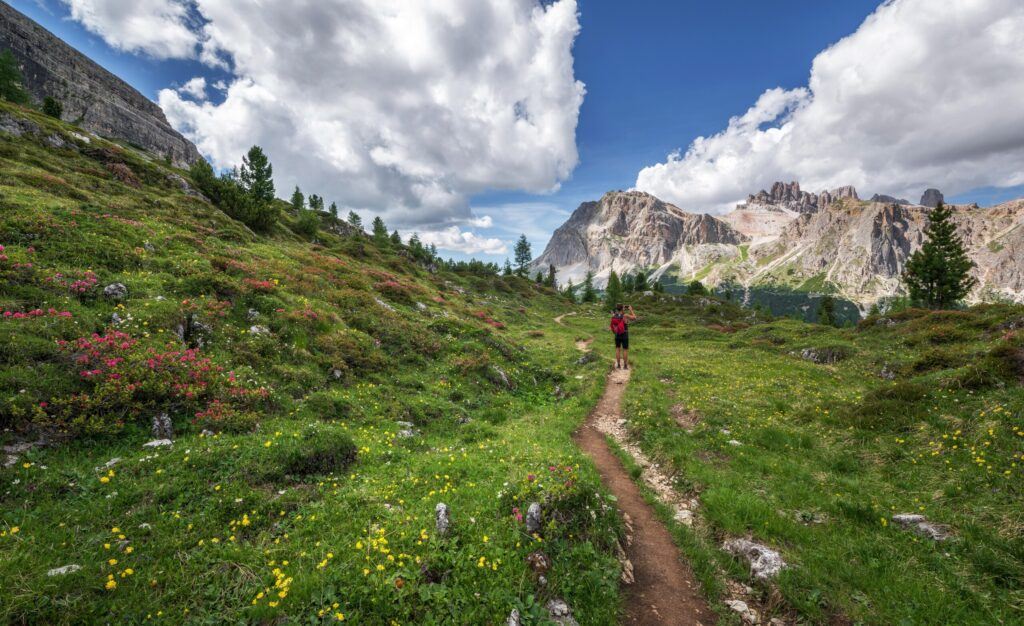The Impact of Environmental Issues
- Category: Mindfulness
- March 7, 2022
Despite all of the promises made by earlier generations, climate change is an issue. Researchers from the University of Waterloo in Ontario, Canada, have released an unsettling finding: the home of the 1960 Winter Olympics, Lake Tahoe, may no longer be a fitting place for future winter games. The climate is changing, affecting the temperatures and type of snow that may fall in the ski town.
The certainty that Lake Tahoe is warming is one of many examples of how what is happening to the earth affects the mental well-being of teens and young adults. Environmental uncertainty can weigh heavily and can increase emotions like depression or anxiety. Is there an answer to decreasing or stopping the effects of climate change? Environmentalists hope so, and so do teens and young adults.
A Brief History of Conservationism
The start of the environmental movement is not clearly defined. Some in the environmental conservation movement claim Earth Day, April 22, 1970, was the start of the campaign. Others believe the beginning of the movement occurred in 1962 when The Silent Spring was published. Before Rachel Carson or Earth Day, Olaus and Margeret Murie used ecology to pioneer conservationism.
With over one hundred years of ecological conservationism to guide corporations and politicians to protect the environment, climate change remains a pressing issue. Yet, teens and young adults face a changing world despite the attention and promises made. The increased strength of tornadoes and hurricanes combined with warmer winters and record-breaking heat in the summers can take a toll on the emotional state of teens and young adults.
The Climate Change Debate
The Cornell Chronicle reports that 99% of scientific peer-reviewed research papers agree that humans are the leading cause of climate change. However, while many people believe in climate change, some don’t. Those who don’t think there is an ongoing environmental change are called climate deniers.
Climate denial comes from a belief that the changes in climate and weather patterns aren’t signs of something more troublesome. A person in climate denial is trying to protect or deflect their role in global warming. However, while a person uses denial as a coping mechanism, they delay their ability to face the challenge of helping protect the earth from further climate change. Whichever belief your client holds, the debate and the effects of global warming can harm their view of others and their place in the world.
The Different Views on Environmentalism
Understanding how different age groups view their role in climate change prevention is essential to helping them. Younger teens, older teens, and young adults don’t share the same definitions or views on what environmentalism means for the earth or future generations.
Views on the environment differ between age groups. For example:
-
Environmental efforts:
Teens between the ages of 13 to 17 witness their households or community’s efforts to improve the environment. However, those above the age of 17 focus on corporations’ role in the environment.
-
Sustainability:
Those 17 and below think sustainability means focusing on the present, while those above 17 believe it’s their job to preserve the earth.
Climate Change as a Mental Health Issue
An online event hosted by New York University’s School of Social Work discussed how teens and young adults are affected by the issue of climate change. Teens realize that they’re the ones who will face some of the most devasting effects of change in the environment. When asked by researchers how they feel about coming to age in a time of climate uncertainty, a majority reported feeling alone. It frustrated them to think about being left to deal with the effects of previous generations’ lack of action.
The ever-present go-to for information—social media—can add to a person’s thoughts and feelings about global warming. Since there is a lot of misinformation, teens and young adults may not know what is true or where to find peer-reviewed scientific papers. In some cases, they turn to the adults in their lives to help guide them to understand global warming. Clients who can’t talk with someone about climate change can feel emotions like detachment, anxiety, or depression. Those teens and young adults who feel alone can seek escapist behaviors.
What Can Teens and Young Adults Do?
To help the conservation movement, teens and young adults can act globally, locally, and personally. A few ways to feel like they’re involved in change include:
-
Find volunteer opportunities. Global organizations like Greenpeace or Waterkeeper Alliance’s missions are to preserve and protect the earth from pollution. Look for resources in the community dedicated to helping the environment.
-
Decrease carbon footprints by driving less or decreasing meat and dairy intake.
-
Simple changes in the home like using LED light bulbs or conserving water are essential.
-
For those of voting age, vote. If a person is below 18, they can participate in peaceful rallies.
Environmental issues are a part of teens’ and young adults’ lives. Since social media is a large part of those 13 and above, they’re exposed to differing views and opinions. Continuous information, misinformation, and debate can be overwhelming. Teens and young adults who actively participate in organizations or movements targeting the protection of the earth can feel they’re making a difference. Unfortunately, those teens and young adults left without viable sources of support can have an increased risk of mental health issues like depression or anxiety. SokyaHealth encourages teens and young adults to seek positive guidance through therapy or coaching. We can offer your clients a safe, non-judgmental place to vent or discuss their thoughts and feelings. Our coaches can guide your client to discover healthy ways to make a difference while also holding them accountable. We are available to answer your questions about our role in your client’s mental well-being. Call us today at (877) 840-6956.



